You may have heard of hardening off. It is the process of gradually acclimating plants that are started indoors or in a protected environment like a greenhouse, so they can live outside.
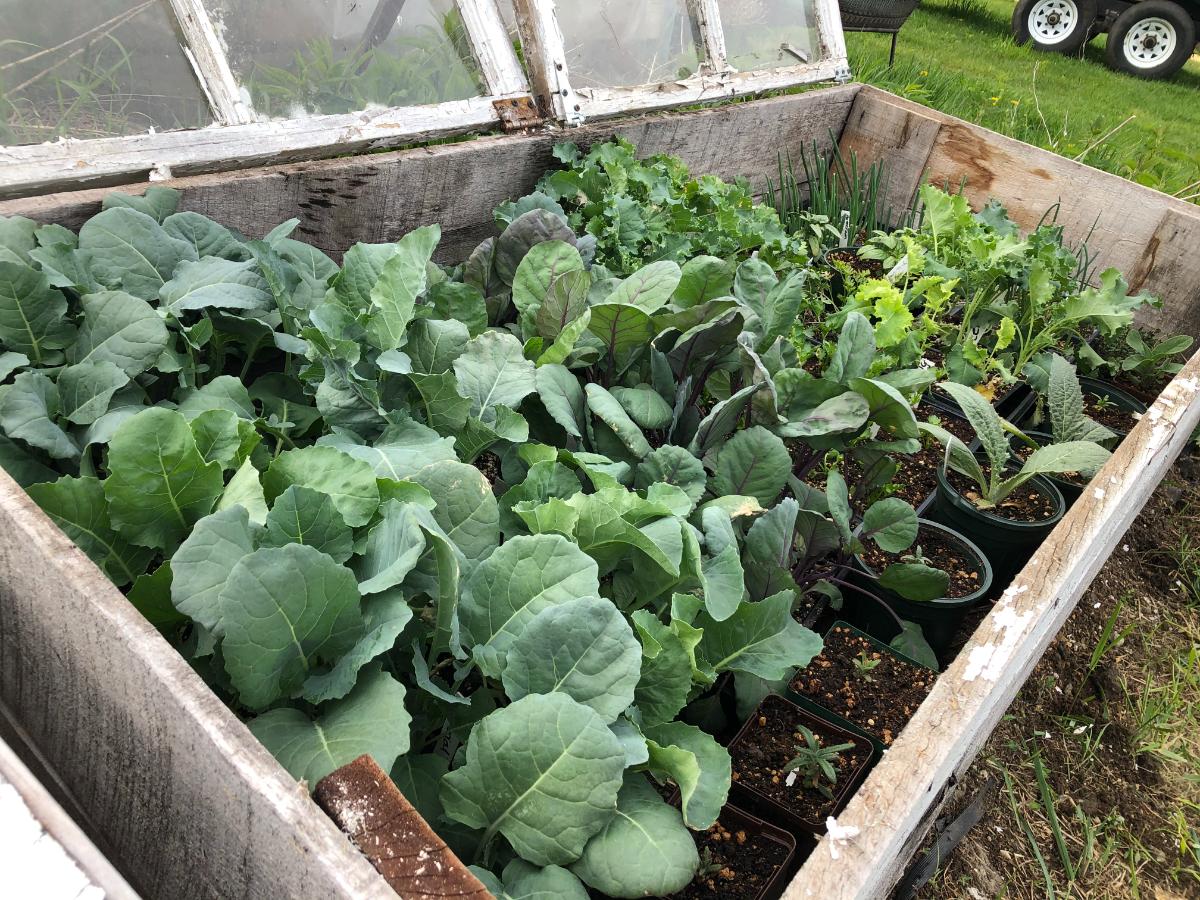
Hardening off prepares plants for the harsher conditions of outdoor living.
You might be wondering: if hardening off prepares plants for harsh outdoor environments, does that mean hardening off will make a tender annual hardy enough to survive a frost?
If you harden off your plants, can you then plant them outdoors earlier? Say, before your last frost date?
Jump to:
- What is hardening off, and why is it done?
- What plants need to be hardened off?
- Does hardening off make frost-sensitive plants frost-tolerant?
- Can hardened-off plants be planted outside before a last frost?
- Hardening off should be done for all annual garden transplants, but it won't change their frost sensitivity
What is hardening off, and why is it done?
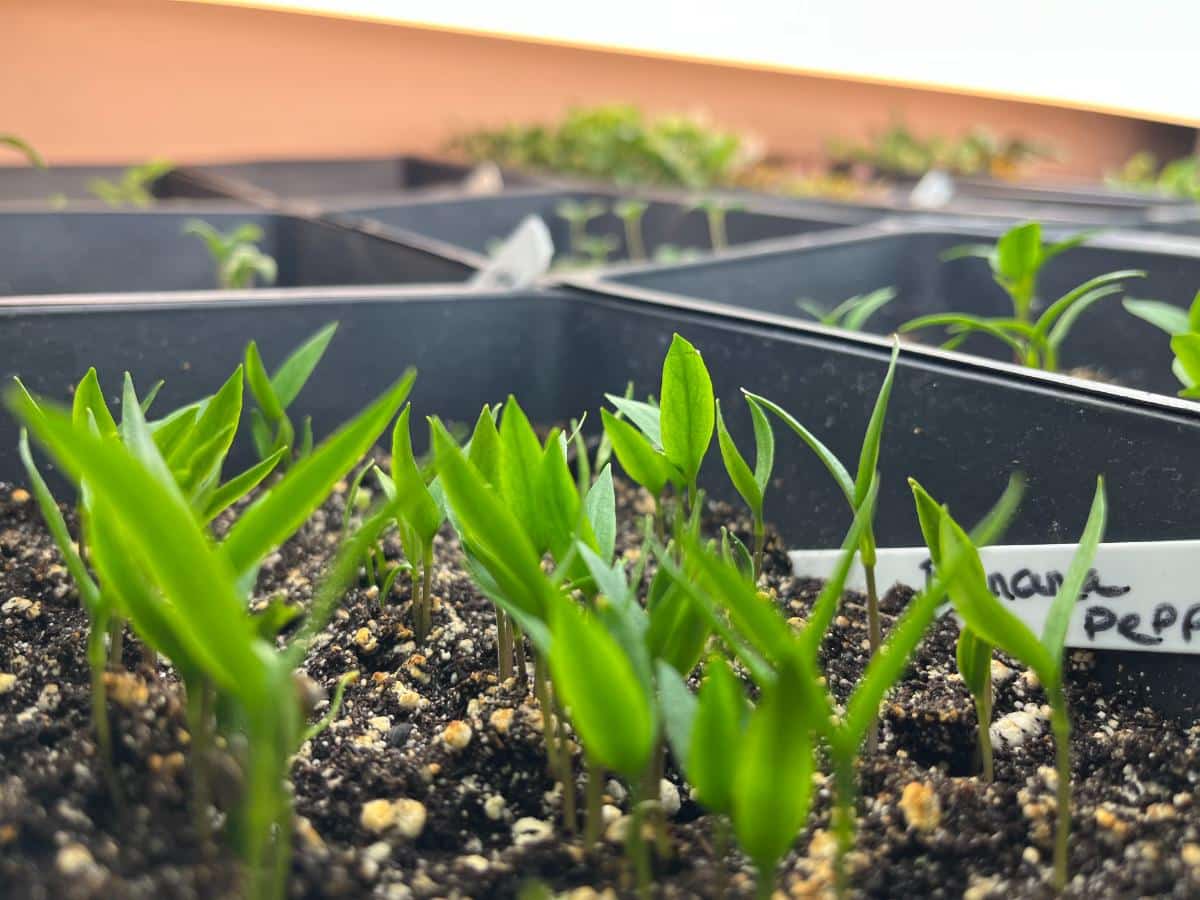
Hardening off is an important step in the plant growing process for plants that are started indoors in constant, ideal conditions. Plants that are not hardened off experience shock, stunted growth, and sometimes even death.
The very different environment of the outside world is just too much to take all at once.
- We harden off plants so that they can withstand the intensity of the sun and the direct heat it brings
- We harden them off so they can adapt to variable water and moisture conditions
- We harden off plants so that they build up a tolerance to direct sunlight, and so their leaves don’t burn off the first time they sit out in the sunlight
- We harden off garden transplants so they can build up a waxy, protective covering on their leaves and stems to reduce water loss and protect from burning
- We harden off garden plants so they build stronger stems and don’t break as easily in windy conditions
- In short, we harden off garden transplants so that they will be prepared to withstand all but the most extreme weather when living outside
What plants need to be hardened off?
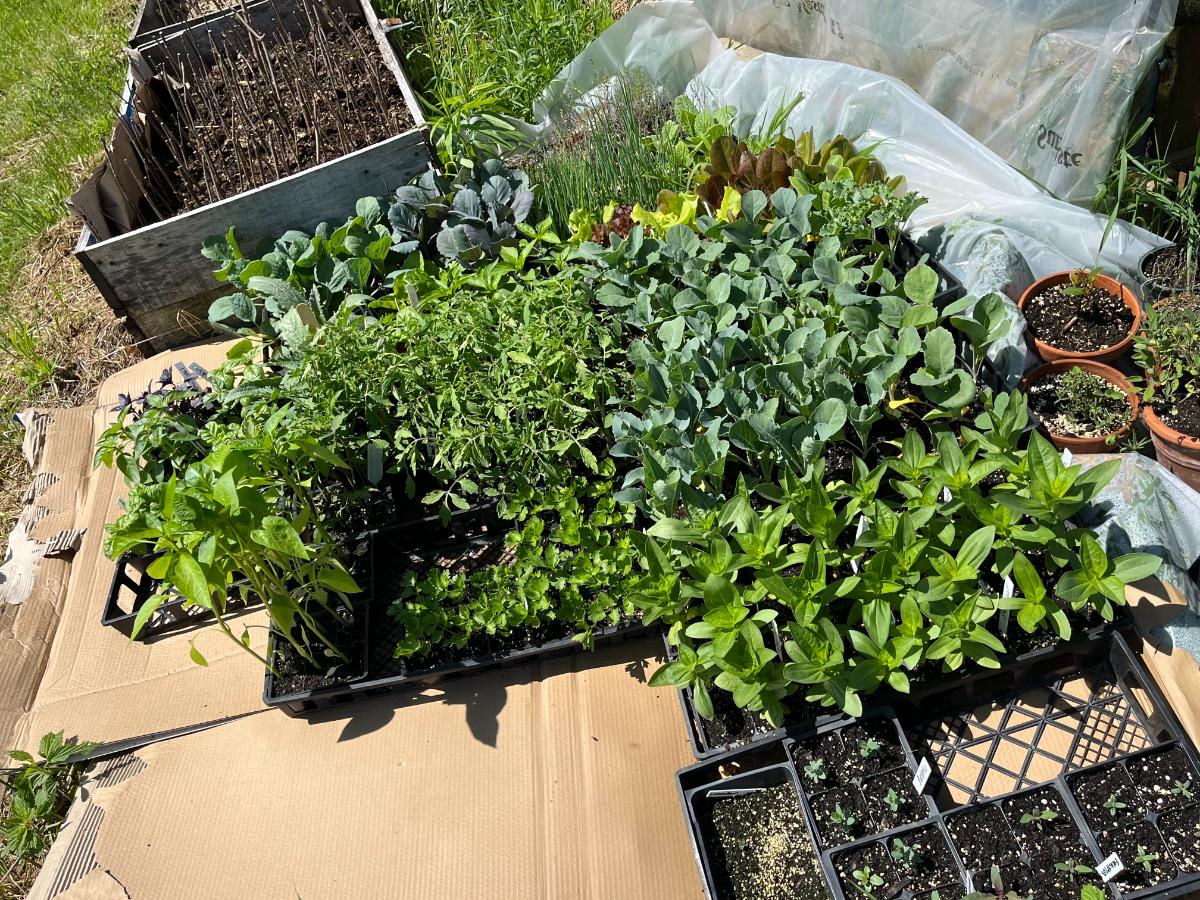
Hardening off is very important for annuals that are started indoors from seed. This includes all the annual vegetable starts and flower seedlings that you’ve grown indoors.
Perennials that are started indoors can benefit from hardening off, too, so that they can also get used to the varying conditions and temperatures outside. Hardening off is a good idea for perennials or any plant that started life inside in a controlled environment.
But the plants that need it the most are annuals. This includes heat-loving tender annuals like tomatoes and peppers, but it does include even sturdier crops and flowers like broccoli, kale, spinach, cabbage, lettuce, and other cole crops.
Hardening off is for greenhouse-grown plants, too

Hardening off is necessary even for plants that are grown in a greenhouse or nursery setting; it isn't only for plants that you started in your house under lights.
Even though greenhouse-grown plants experience stronger sunlight, they are still quite coddled and protected compared to living outside. Their water needs are always met; they don’t experience high wind conditions more than a fan gently blowing on them, and the temperature is steady and consistent.
So, even plants that are grown in protected culture need to be hardened off. And this goes for plants that you buy from a greenhouse or nursery, too.
If you don’t know for sure that the greenhouse hardened off those plants before they were put out for sale, take the time to harden them off yourself. That time will pay off in the end when the plants don’t get broken, burned, or shocked into a growth stoppage.
Does hardening off make frost-sensitive plants frost-tolerant?
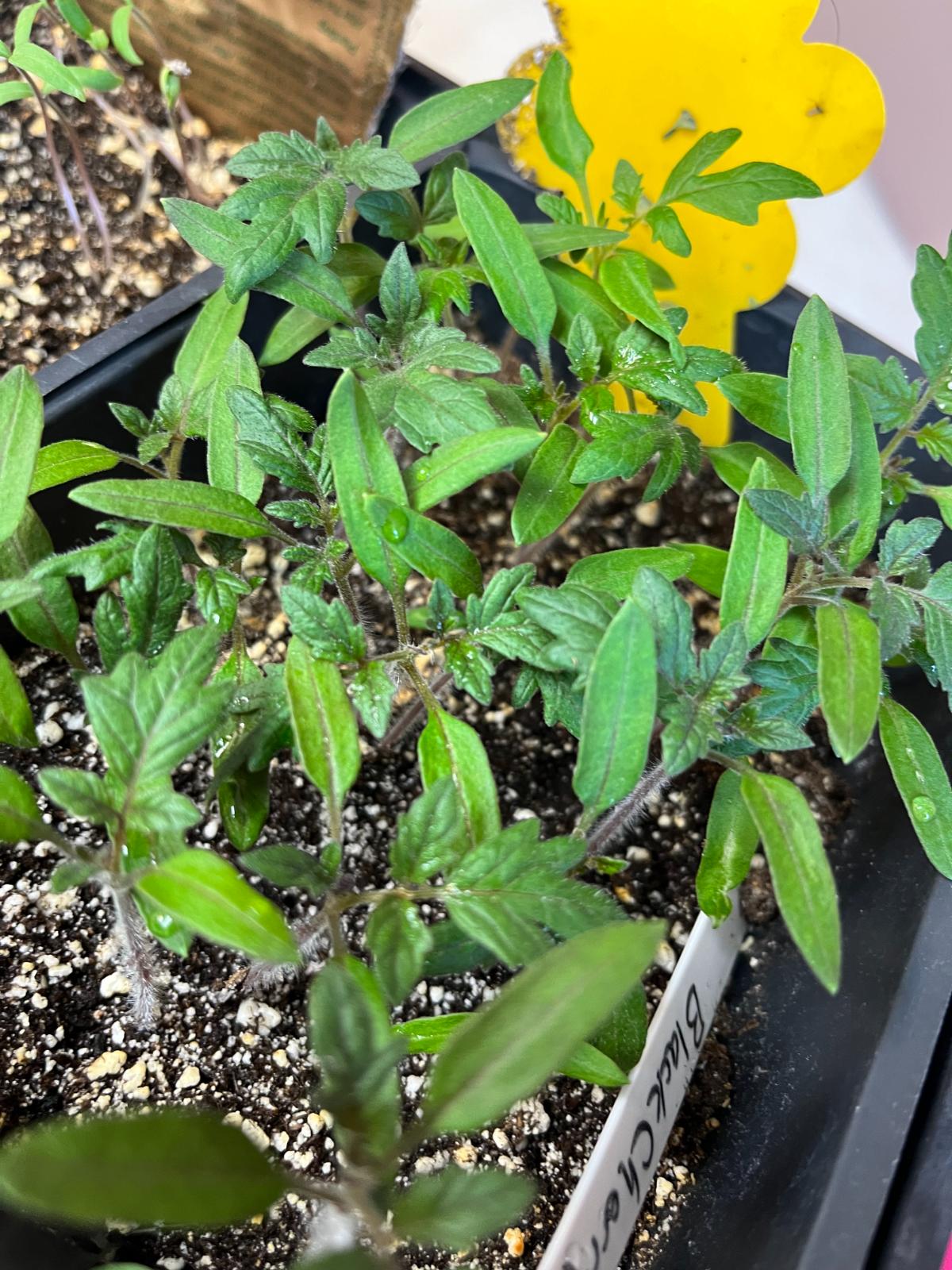
Since hardening off is a process that prepares plants to live outside, you might think that hardening off can build up a plant’s frost tolerance, or make a plant so that it will not be killed by frost. So, will it?
The answer is no.
Hardening off builds up a plant’s sturdiness, but it will not make a plant frost-tolerant. It can’t go that far.
Hardening off will do all those things mentioned above. It will make it so the cooler temperatures and higher heat will not be such a shock (similar to how we get acclimated to the change in temperatures when the seasons change). It will make them stronger and better able to withstand things like wind and whipping rain, but it won’t change the plant’s basic hardiness or construction.
Can hardened-off plants be planted outside before a last frost?
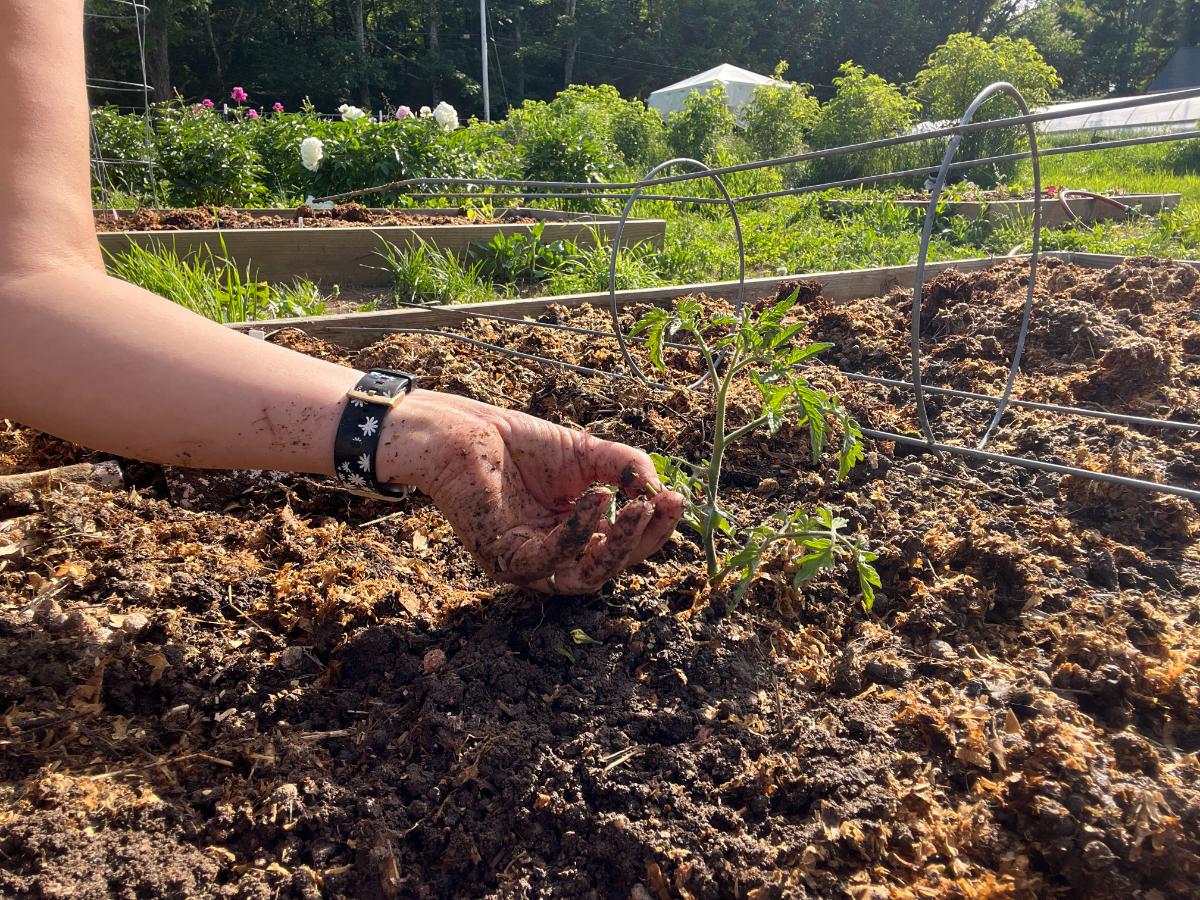
The answer to this is also no -- at least, the answer is no for frost-sensitive plants. (Not all garden annuals are frost sensitive, though.)
Hardening off is not a season extender. It is a plant conditioner.
So you can’t just harden off a plant and make it ready to go outside before it is supposed to; before the soil, temperature, and weather conditions are right.
In other words, you can’t just harden off a tomato transplant or a pepper plant and make it ready to be planted earlier than it should be.
Some garden annuals can live outside before a frost (after hardening off)
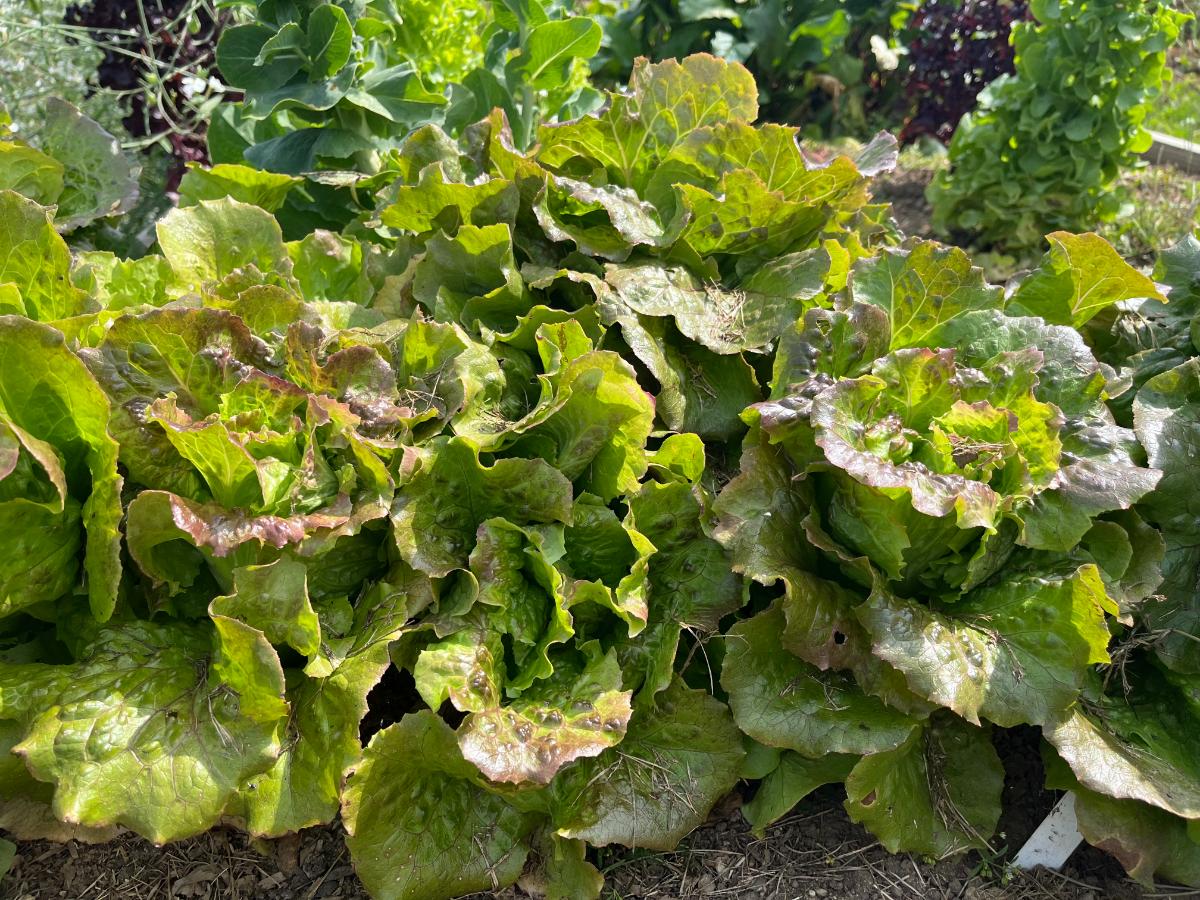
There are several garden transplants that we start indoors from seed, but that are also frost-tolerant.
Some examples of these include
- Broccoli
- Cauliflower
- Kale
- Spinach
- Lettuce
- Leafy greens
- Cabbage varieties
- Brussels sprouts
- “Cole crops”
For these plants, yes, they can be planted outside before your last frost date. After they are hardened off and acclimated to outdoor conditions, these plants can withstand late frosts. They will not withstand a hard freeze (25 F or -3.9 C for two hours or more), but frost (28 to 32 F or -2.2 to 0 C) will not kill them.
Hardening off should be done for all annual garden transplants, but it won't change their frost sensitivity
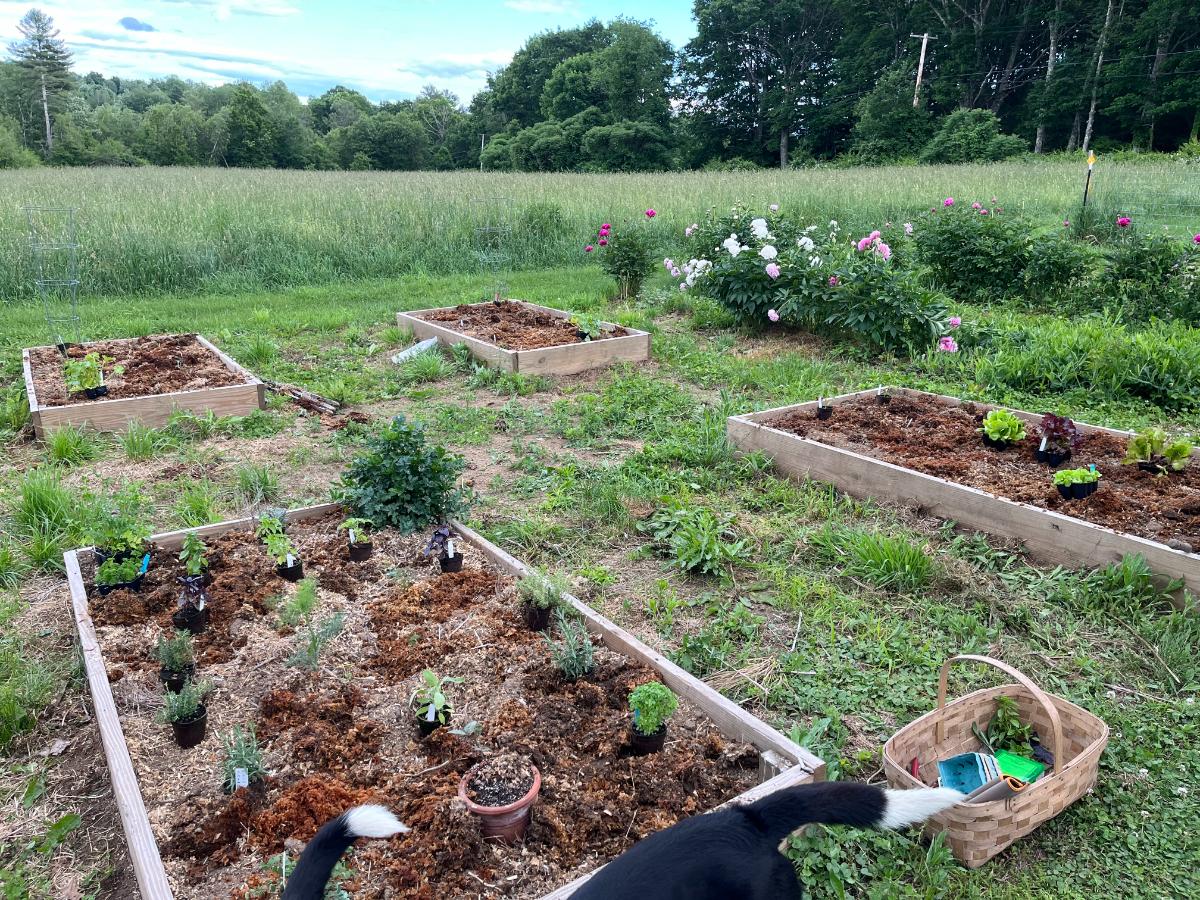
To review, all garden transplants that are started inside -- including perennials -- should be hardened off. This is preparing them for outdoor life.
But hardening off can’t change the biology of a plant. It won’t suddenly take a plant from frost-sensitive to frost-tolerant.
What hardening off will do is give your garden annuals and other transplants the best possible preparation and the best possible start to life outdoors. It will make them able to handle what Mother Nature throws at them.
Hardening off is certainly an important step in growing strong, thriving garden transplants. It’s important not to skip it. It’s also important to understand its limitations.
Not sure how to harden off your garden transplants? Here’s how: Hardening Off Garden Transplants: Steps, Benefits, and How to Do It

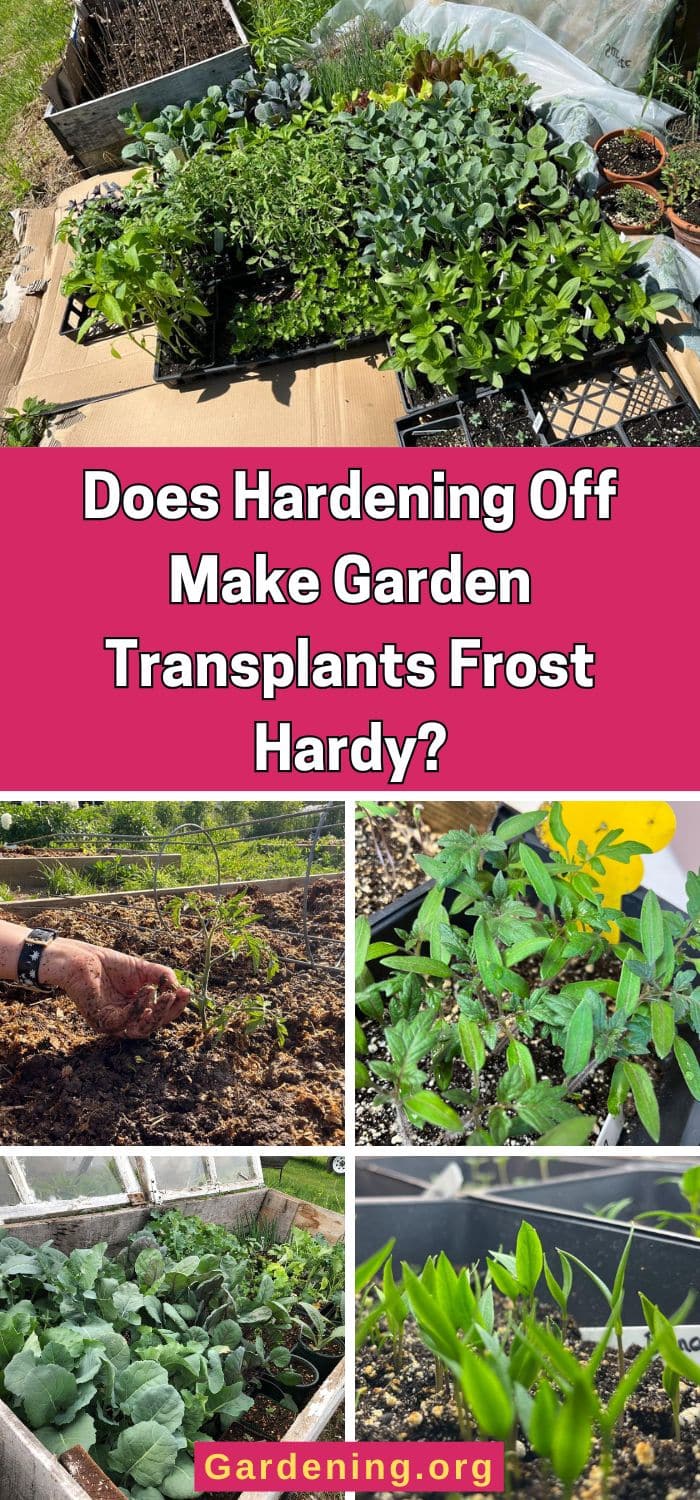
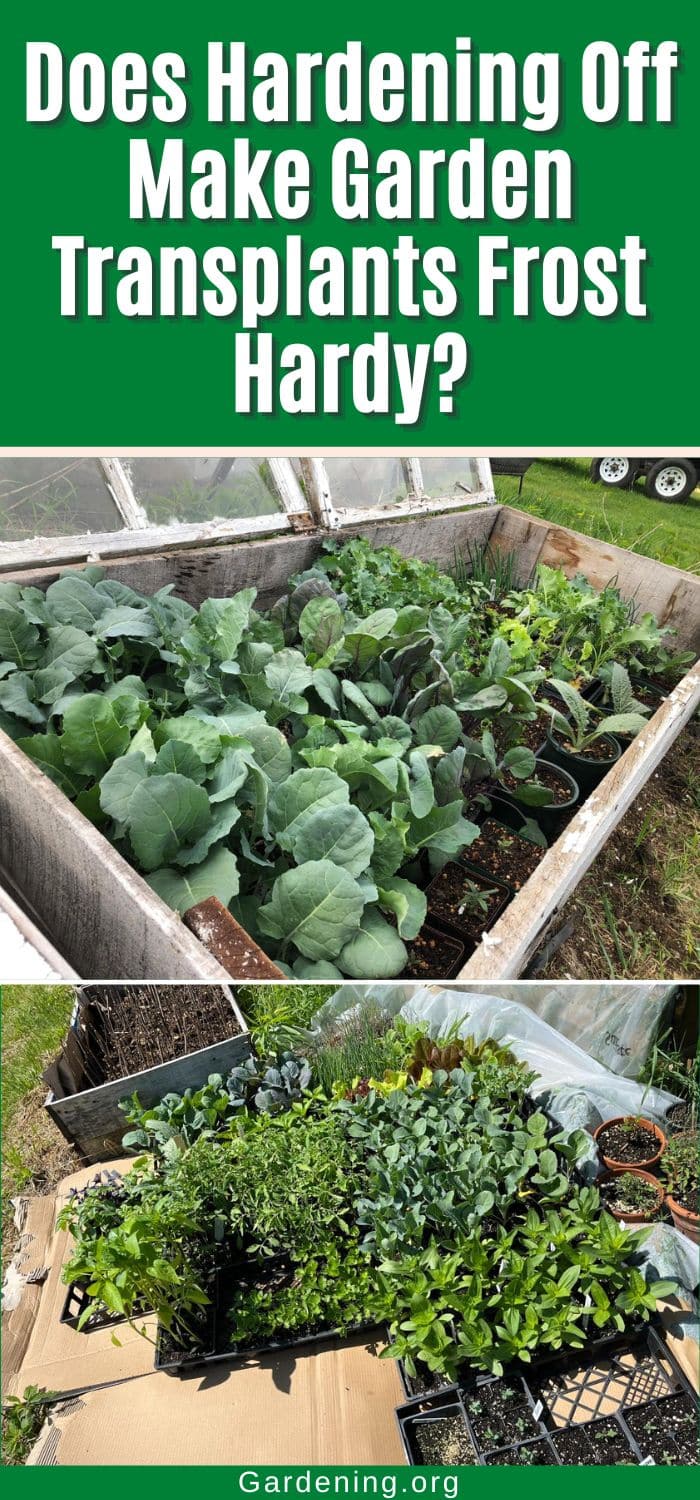
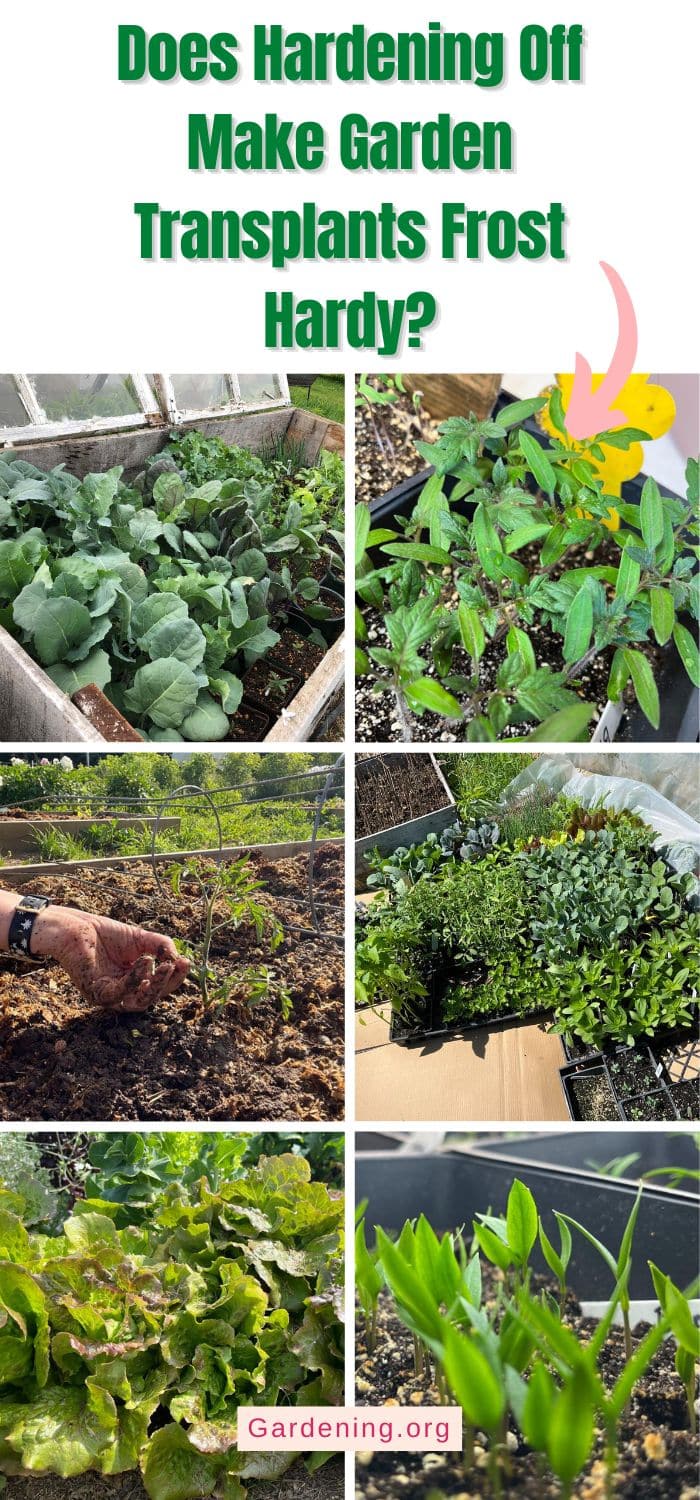
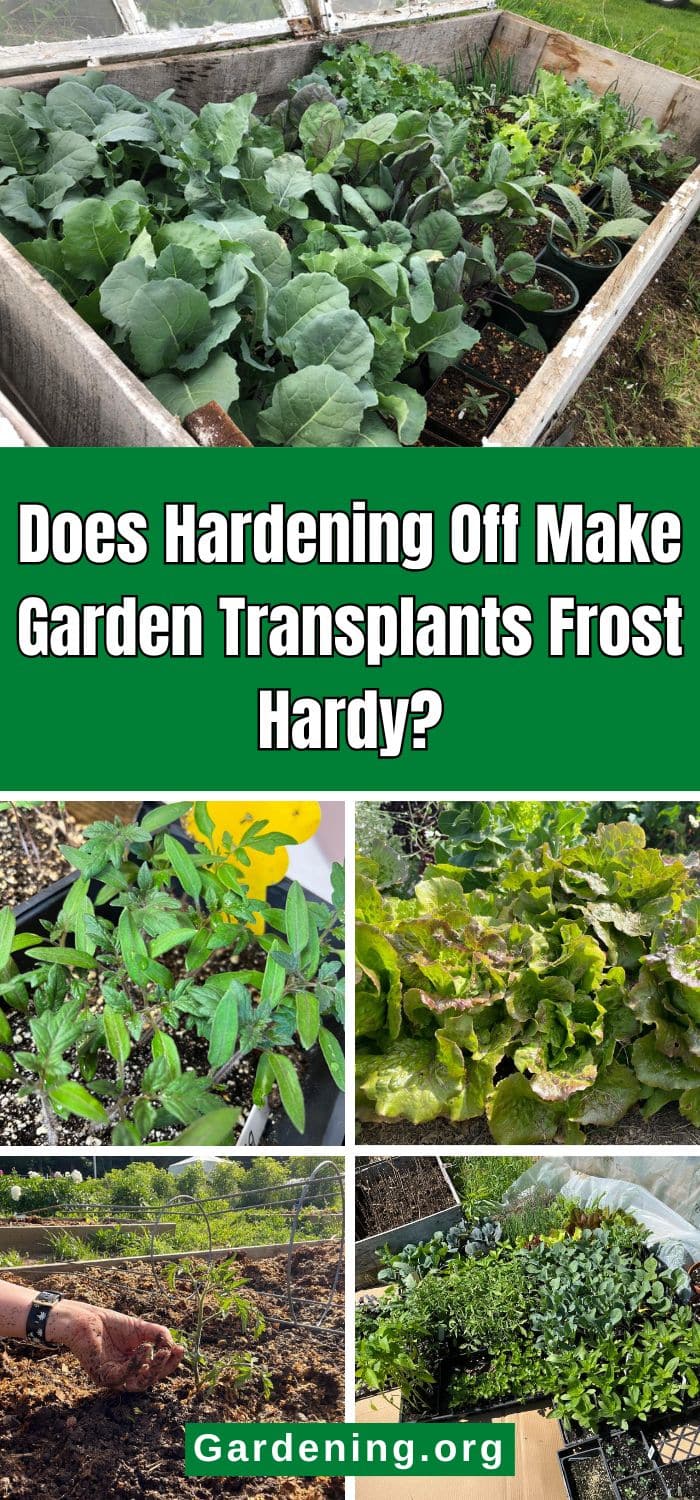
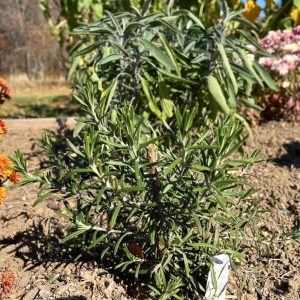
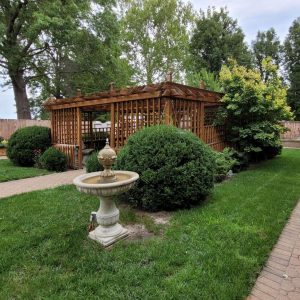
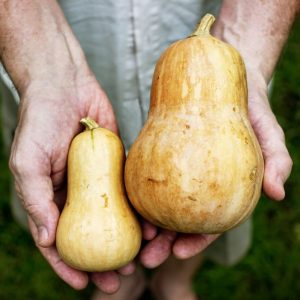
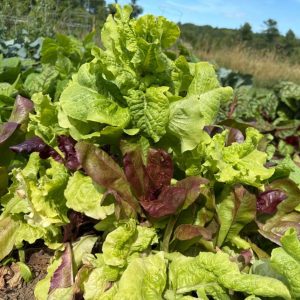
Leave a Reply